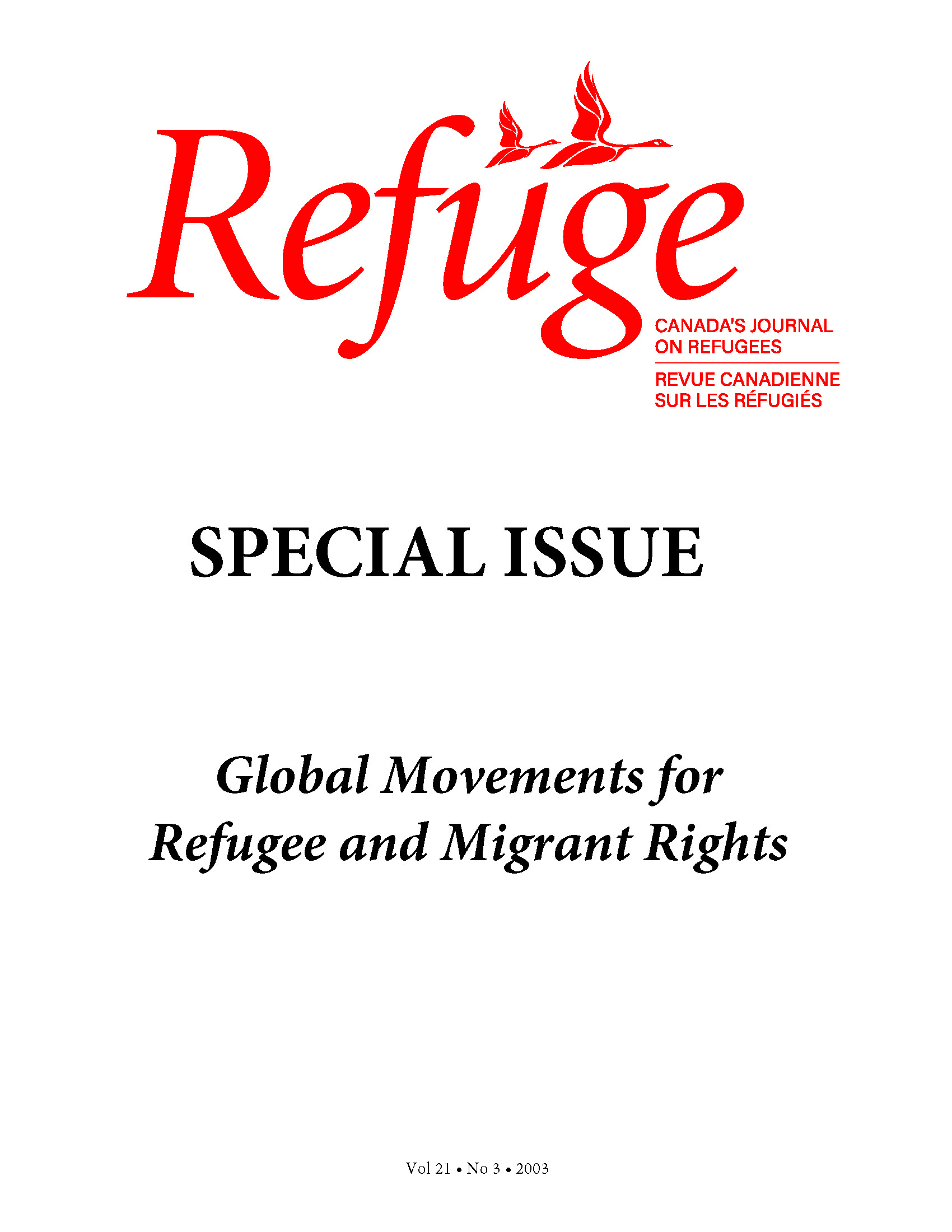Travel Agency: A Critique of Anti-Trafficking Campaigns
DOI:
https://doi.org/10.25071/1920-7336.21302Keywords:
anti-trafficking campaigns, human trafficking, people smuggling, undocumented migrants, migrant women, migration controlAbstract
This paper offers a critical evaluation of anti-trafficking campaigns spearheaded by some in the feminist movement in an attempt to deal with the issues of unsafe migrations and labour exploitation. I discuss how calls to “end trafficking, especially in women and children” are influenced by – and go on to legitimate – governmental practices to criminalize the self-willed migration of people moving without official permission. I discuss how the ideological frame of anti-trafficking works to reinforce restrictive immigration practices, shore up a nationalized consciousness of space and home, and criminalize those rendered illegal within national territories. Anti-trafficking campaigns also fail to take into account migrants’ limited agency in the migration process. I provide alternative routes to anti-trafficking campaigns by arguing for an analytical framework in which the related worldwide crises of displacement and migration are foregrounded. I argue that by centering the standpoint of undocumented migrants a more transformative politics emerges, one that demands that people be able to “stay” and to “move” in a self-determined manner.Metrics
Downloads
Published
How to Cite
Issue
Section
License
Copyright (c) 2003 Nandita Sharma

This work is licensed under a Creative Commons Attribution-NonCommercial 4.0 International License.
Refuge authors retain the copyright over their work, and license it to the general public under the Creative Commons Attribution-Non Commercial License International (CC BY-NC 4.0). This license allows for non-commercial use, reproduction and adaption of the material in any medium or format, with proper attribution. For general information on Creative Commons licences, visit the Creative Commons site. For the CC BY-NC 4.0 license, review the human readable summary.







